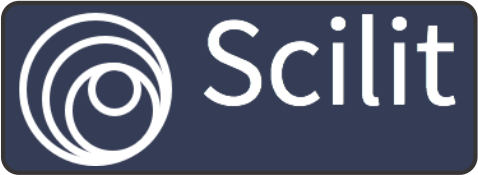Strengthening Halal Ecosystems Through Empowerment Of KHAS Zones in Ponorogo District
DOI:
https://doi.org/10.21154/joie.v2i2.5078Keywords:
empowerment, halal ecosystem, KHAS zoneAbstract
This study aims to determine the perception of the community as business actors about the applicability of the KHAS (Halal, Safe and Healthy Culinary) zone in welcoming the halal ecosystem in Ponorogo Regency. The research method used is a qualitative research methodology with a case study approach. The results showed that most of the business actors, especially those engaged in the culinary sector, did not understand much about the concept of the KHAS zone. This is due to several factors including: lack of understanding and awareness of business actors to manage halal certificates for their food and beverage products; lack of literacy and socialization about halal life style; local governments have not focused on the development of the halal ecosystem. However, the opportunity to develop a KHAS zone in Ponorogo Regency is very possible, this is because: Ponorogo has been known as a city with global cultural and religious tourism; The public's enthusiasm for the culinary industry is very large, the majority of the people are Muslim. Therefore, synergy between stakeholders is needed, both from the local government as the policy holder, the trade office as the authority that oversees business actors, the Health Service which has the authority to label sanitation, and the bpjh under the Ministry of Religion as the authorized agency in the management of halal certification.
Penelitian ini bertujuan untuk mengetahui persepsi masyarakat sebagai pelaku usaha tentang keberlakuan zona KHAS (Kuliner Halal, Aman dan Sehat) dalam menyongsong ekosistem halal di Kabupaten Ponorogo. Metode penelitian yang digunakan adalah metodologi penelitian kualitatif dengan pendekatan studi kasus. Hasil penelitian menunjukkan bahwa sebagian besar pelaku usaha khususnya yang bergerak di bidang kuliner belum banyak memahami tentang konsep zona KHAS. Hal ini disebabkan beberapa faktor diantaranya: kurangnya pemahaman dan kesadaran pelaku usaha untuk melakukan kepengurusan sertifikat halal bagi produk makanan dan minumannya; kurangnya literasi dan sosialisasi tentang halal life style; pemerintah daerah belum terfokus pada pengembangan ekosistem halal. Namun demikian, peluang untuk mengembangkan zona KHAS di Kabupaten Ponorogo sangat memungkinkan, hal ini dikarenakan: Ponorogo telah dikenal sebagai kota dengan wisata budaya dan religi yang mendunia; antusiasme masyarakat terhadap industry kuliner sangat besar, mayoritas masyarakatnya bergama Islam. Maka dibutuhkan sinergisitas antar pemangku kepentingan baik dari pemerintah daerah sebagai pemegang kebijakan, dinas perdagangan sebagai otoritas yang membawahi pelaku usaha, dinas Kesehatan yang mempunya wewenang untuk labelisasi sanitasi, dan bpjh dibawah kemenag sebagai instansi yang berwenang dalam kepengurusan sertifikasi halal.
References
Sukoso, Adam Wiryawan, Joni, Sucipto. (2020). Ekosisitem Industri Halal. Jakarta: Departemen Ekonomi Dan Keuangan Syari’ah Bank Indonesia.
Abu Ihsan al-Atsari. Syaikh Shafiyurrahman Al Mubarakfuri. (2006). Tafsir Al-Qur’an Ibnu Katsir. Bogor: Pustaka Ibnu Katsir.
Wahbah Zuhaily, (2005). Al Wajiz Fi Al-Fiqh Al-Islamy 1. Beirut: Daar al-Fikr.
BPS Kabupaten Ponorogo. (2022). Kabupaten Ponorogo Dalam Angka. Ponorogo: BPS Kabupaten Ponorogo.
RI, D.A. (2008). Panduan Sertifikat Halal. Jakarta: Direktorat Jendral Bimbingan
Undang-Undang Republik Indonesia Nomor 33 tahun 2014 Tentang Jaminan Produk Halal.
https://investor.id/opinion/226995/mengokohkan-ekosistem-halal
https://beritajatim.com/ekbis/12-produk-umkm-ponorogo-naik-kelas/
https://pifa.co.id/berita/zona-khas-keamanan-pangan-bagi-masyarakat-dalam-wisata-halal
https://kemenperin.go.id/artikel/22852/Kemenperin-Fokus-Bangun-Ekosistem-Halal-Nasional
https://adv.kompas.id/baca/eskalasi-ekosistem-halal-di-indonesia/


















